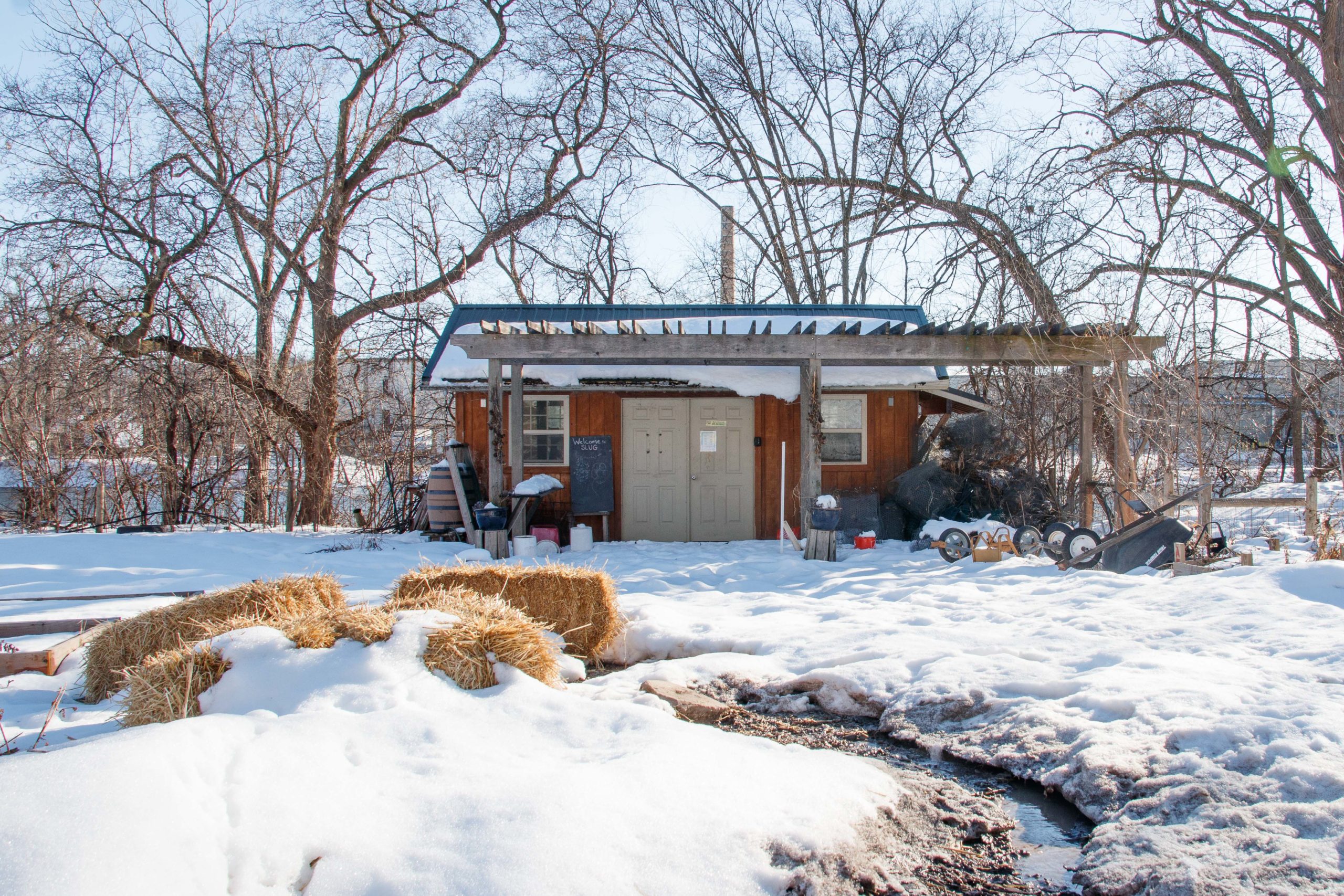The Sustainable Lawrence University Garden (SLUG) helps to collect and analyze data about composting on campus
Photo by Sebastian Evans
Lawrence University is competing in this year’s Campus Race to Zero Waste, an annual eco-friendly competition between colleges to see who can produce the least amount of waste. Campus Race to Zero Waste 2021 began on Jan. 31 and will continue until March 27.
According to sophomore Ellen Teerink, Sustainability Program Coordinator in the Center for Community Engagement and Social Change, the restrictions of the COVID-19 pandemic have increased the amount of waste produced on campus. Teerink hopes that Lawrence’s participation in Campus Race to Zero Waste will raise awareness about this increase and encourage students to make changes.
Grace Subat, Sustainability and Special Events Fellow, said that Lawrence is participating in the Trash, Recyclables and Food Organics category of the competition. The Lawrence community has until March 27 to reduce as much waste in these areas as possible.
The trash and recyclables produced are calculated by the number of dumpsters on campus and how often they are emptied, Subat explained. Then, the weight of the trash and recyclables is calculated using their volumes. The Sustainable Lawrence University Gardens (SLUG) are assisting in the calculation of Food Organics by providing the weight of compost collected from food waste in Andrew Commons.
So far, Lawrence has produced a rough estimate of about 28,600 pounds of trash, about 5,198 pounds of recyclables and about 1,600 pounds of composted food waste as of this article’s deadline, as reported sophomore Adya Kadambari, a member of the Sustainability Steering Committee and Chair of the Lawrence University Community Council (LUCC) Ad Hoc Sustainability Committee.
Because the trash and recyclables are calculated under the assumption that the dumpsters and bins are full, the numbers will be a close estimate, Subat said. She hopes that this year’s initiative can serve as a way to start the conversation about waste reduction on campus.
As part of this competition, Lawrence students can reduce their waste on campus in a variety of ways. Subat suggested bringing reusable bags and clamshells to Andrew Commons, recycling disposable food containers and utensils whenever possible and bringing plastic bags to the receptacles at the Seeley G. Mudd Library or the Warch Campus Center to be donated to Habitat for Humanity.
For students like Kadambari, encouraging waste reduction on campus is an important objective.
“If I can help impart some skills into the student body that they could keep for the rest of their lives, that’s already a goal that’s met,” Kadambari said.
According to Kadambari, the Ad Hoc Sustainability Committee works to make Lawrence more sustainable. One way they do this is by encouraging the use of clamshells and providing students with reusable bags.
To provide students with an incentive to reduce their waste, Lawrence has begun an environmentally oriented competition with a reward of Viking Gold. For each Andrew Commons meal in which students bring their reusable clamshell, their names are entered for a chance to win the prize. Before Lawrence announced their participation in Campus Race to Zero Waste, during an average meal, about 300 out of 800 students brought either their reusable bag or clamshell with them to Andrew Commons, Kadambari said. However, after joining Campus Race to Zero Waste, the average has risen to about 500 out of 800 students who bring their reusable bags or clamshells.
Additionally, Kadambari announced that the ad hoc committee is in the process of providing each floor of each residence hall with a composting bin.
“We recognize that there is a pandemic-related rise in food waste in the halls right now, and this would be a way for students to ensure their food waste is going towards the SLUG garden,” Kadambari said.
THE ECO TRUTH
A look into the environmental data Lawrence has collected since the race began
28,600 POUNDS OF TRASH
5,198 POUNDS OF RECYCLING
1,600 POUNDS OF COMPOST
67% INCREASE IN CLAMSHELL USAGE

